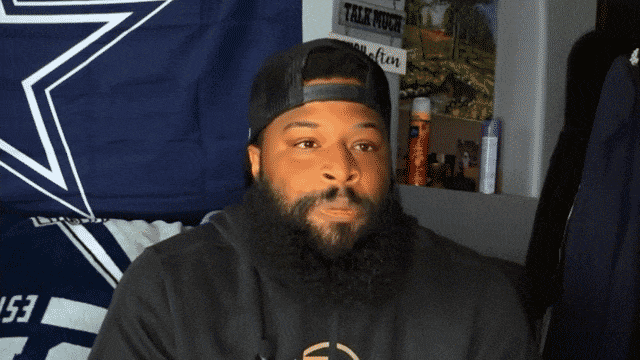“Texas Tough” McKay Law
Texas Brain Injury Lawyer
When faced with the life-altering challenges of a brain injury, McKay Law stands as a trusted advocate for justice and fair compensation in Texas. With a deep understanding of the complexities surrounding brain injury cases, McKay Law combines legal expertise and compassion to fight tirelessly for their clients’ rights. Their unwavering dedication to holding negligent parties accountable ensures that clients can focus on recovery while McKay Law handles the rest. Whether it’s medical bills, lost wages, or emotional damages, McKay Law is committed to securing the compensation you deserve.
NO FEES UNLESS WE WIN!
We only get paid when you get paid.
Receive Immediate Medical Care
Get the medical attention you need with no out-of-pocket cost in most cases.
24/7 Access To Us
We are here for you 24/7 so you can focus on healing.
Client Satisfaction
McKay Law has a reputation to be proud of with 300+ 5 star Google Reviews.
Texas Brain Injury Attorney | McKay Law
At McKay Law, we understand that a brain injury can be a life-changing event, not only for the victim but also for their loved ones. The physical, emotional, and financial toll of a traumatic brain injury (TBI) can be overwhelming, requiring extensive medical care, rehabilitation, and ongoing support.
Located in Texas, our law firm is dedicated to fighting for justice on behalf of those who have suffered from TBIs caused by accidents, negligence, or other wrongful acts. With years of experience and a proven track record of success, we provide the expertise, compassion, and determination needed to help you navigate the legal process.
Our goal is to secure the compensation you deserve to cover medical expenses, lost wages, pain and suffering, and other damages, so you can focus on healing and rebuilding your life. At McKay Law, we are here to be your advocate every step of the way..
Understanding Brain Injuries in Texas
Personal injury lawsuits related to brain injuries in Texas can be complex, but they are an important avenue for victims to seek compensation. Here’s an overview of key aspects:
1. Grounds for a Lawsuit
- Negligence: Most personal injury cases are based on proving that another party’s negligence caused the brain injury (e.g., car accidents, slip and falls).
- Intentional Acts: If the injury was caused intentionally (e.g., assault), the victim may file a lawsuit for damages.
- Product Liability: If a defective product caused the injury (e.g., faulty helmets), the manufacturer or seller may be held liable.
2. Types of Compensation
Victims may be entitled to:
- Economic Damages: Medical bills, rehabilitation costs, lost wages, and future earning capacity.
- Non-Economic Damages: Pain and suffering, emotional distress, and loss of quality of life.
- Punitive Damages: In cases of gross negligence or intentional harm, additional damages may be awarded to punish the wrongdoer.
3. Statute of Limitations
- In Texas, the statute of limitations for personal injury cases is two years from the date of the injury. Missing this deadline can result in losing the right to file a lawsuit.
4. Proving the Case
To succeed in a personal injury lawsuit, the plaintiff must prove:
- Duty of Care: The defendant had a legal obligation to act reasonably.
- Breach of Duty: The defendant failed to meet this obligation.
- Causation: The breach directly caused the brain injury.
- Damages: The injury resulted in measurable losses (economic or non-economic).
5. Comparative Fault in Texas
- Texas follows a modified comparative fault rule. If the victim is found partially at fault, their compensation is reduced by their percentage of fault. If they are more than 50% at fault, they cannot recover damages.
6. Hiring an Attorney
- Brain injury cases often require expert testimony (e.g., medical professionals, accident reconstruction experts) to establish the extent of the injury and its impact on the victim’s life.
- An experienced personal injury attorney can navigate the legal process, negotiate with insurance companies, and represent the victim in court if necessary.
7. Resources
- Texas Brain Injury Alliance: Offers support and resources for brain injury victims.
- State Bar of Texas: Can help connect you with qualified personal injury attorneys.
Lindsey McKay Takes Texas Brain Injuries Due To Negligence Of Others Cases Seriously
When someone suffers a brain injury due to another’s negligence, life can change in an instant. Medical bills pile up, futures become uncertain, and the path forward feels overwhelming. For Texans in these situations, Lindsey McKay stands as a steadfast advocate, offering not only legal expertise but also compassionate guidance through some of the hardest days of their lives.
Specializing in brain injury cases caused by negligence, Lindsey McKay has made it her mission to secure justice for victims and their families. Here’s a deeper look at her unparalleled dedication, the complexities of brain injury cases, and why she has become a trusted name in the field.
Understanding Brain Injury Cases: More Than Just Legalities
Brain injuries are among the most severe and life-altering conditions people can face. The physical, emotional, and financial tolls are immense, and victims often require ongoing medical care, rehabilitation, and support. These cases frequently arise from incidents such as car accidents, workplace mishaps, slips and falls, or medical malpractice.
Lindsey McKay understands that each case is unique. She doesn’t rely on cookie-cutter solutions. Instead, she takes the time to deeply understand her clients’ experiences, injuries, and the negligence that led to their conditions. With this approach, she crafts personalized strategies aimed at achieving the best possible outcomes.
Types of Cases Lindsey Handles
Lindsey McKay has extensive experience handling a variety of brain injury cases across Texas. Some of the most common scenarios she deals with include:
1. Motor Vehicle Accidents
These are a leading cause of brain injuries, often resulting from reckless or distracted driving. Whether it’s a multi-car pileup or a driver running a red light, Lindsey fights to hold negligent parties accountable.
2. Falls and Premises Liability Cases
Unsafe property conditions can lead to devastating falls. From slippery floors to poorly maintained walking spaces, property owners have a duty of care. Lindsey ensures victims are compensated when that duty is violated.
3. Workplace Accidents
For jobs involving construction, heavy machinery, or hazardous conditions, brain injuries are a constant risk. Lindsey stands up for injured employees, ensuring they receive damages when employer negligence plays a role.
4. Medical Malpractice
When healthcare professionals fail to uphold the standards of care, brain injuries can occur from oxygen deprivation, surgical errors, or misdiagnosed conditions. McKay has the knowledge and determination to take on hospitals and medical providers.
5. Sports-Related and Recreational Injuries
High-impact sports and recreational activities sometimes lead to traumatic brain injuries (TBIs). Lindsey helps families pursue justice in situations where organizers failed to mitigate risks or offer proper protections.
Solving the Challenges of Brain Injury Cases
Brain injury cases are notoriously complex, but Lindsey McKay’s depth of knowledge gives her clients an edge. Here’s how she addresses some of the toughest challenges these cases pose:
1. Establishing Negligence
Proving that someone else’s carelessness caused a brain injury requires intricate evidence. Lindsey works alongside accident reconstruction specialists, medical experts, and other professionals to build ironclad cases for her clients.
2. Quantifying Damages
Brain injuries often have long-term effects, which means determining financial compensation goes beyond medical costs. McKay calculates future expenses, lost earning potential, and damages for pain and suffering to ensure nothing is overlooked.
3. Navigating Emotional Complexities
For many clients, the legal process can feel overwhelming when they’re already coping with physical recovery and emotional pain. Lindsey’s compassionate approach helps ease this burden. She ensures her clients understand each step of the process and feels supported throughout.
4. Battling Insurance Companies
Insurance companies are skilled at minimizing payouts, but Lindsey McKay won’t back down. She’s a fierce negotiator who understands the tactics insurers use—and knows how to counter them to secure fair settlements or court victories.
Why Families Trust Lindsey McKay
Families facing a brain injury case need more than just a lawyer—they need an advocate. Lindsey McKay is known not only for her legal expertise but also for her care and commitment. She prioritizes building strong relationships with her clients and making sure their voices are heard.
Her clients consistently praise her ability to explain even the most intricate legal concepts in a way that feels accessible and clear. Transparency is central to how she operates; families always know where their case stands and what to expect next.
Results That Matter
While compassion is at the heart of what Lindsey does, results matter too—and she delivers. Her thorough preparation, strategic thinking, and willingness to go to trial when necessary have earned her a track record of successful outcomes.
Community Involvement
Beyond the courtroom, Lindsey McKay is committed to making a positive impact in her community. She actively participates in local events aimed at raising awareness about brain injuries and educating the public on prevention and support. Lindsey collaborates with schools, community centers, and healthcare professionals to share resources and spread knowledge about the risks and long-term effects of brain injuries.
Her dedication extends to working closely with organizations that support brain injury victims and their families. Whether through volunteering, fundraising, or offering pro bono legal advice, Lindsey continually seeks ways to uplift those affected by these life-altering injuries. Her ongoing efforts not only provide immediate assistance to victims but also contribute to lasting change and greater understanding throughout the Texas community.
Moving Forward After a Brain Injury
Brain injuries cause ripples that can be felt for a lifetime. When negligence is involved, holding the responsible party accountable isn’t just about justice—it’s about giving victims and their families the best chance to rebuild their lives.
Lindsey McKay combines legal mastery with genuine empathy to be the advocate victims need. Her dedication to handling these cases seriously means her clients can focus on healing while she fights tirelessly on their behalf.
If you or a loved one is facing a brain injury caused by negligence, Lindsey McKay can provide clarity and support in your time of need. Reach out to her and take the first step toward justice and recovery.
What Are The Most Common Types of Causes For Brain Injuries In Texas?
Understanding the leading causes of brain injuries in Texas is crucial for both prevention and awareness. Every year, countless individuals suffer from life-altering injuries due to slip-and-fall accidents, motor vehicle crashes, and workplace mishaps. These incidents not only impact the victims but also ripple through families and communities. By shedding light on these common contributors, we can take steps to reduce risks, encourage safety measures, and protect lives. Let’s explore these causes and their significance in creating a safer future for everyone.
The most common causes of brain injuries in Texas include:
- Slip and Fall Accidents: These are a leading cause of traumatic brain injuries (TBIs), especially among older adults and young children.
- Motor Vehicle Crashes: Car, truck, and motorcycle accidents are significant contributors to TBIs, particularly for individuals aged 15 to 44.
- Blunt Trauma: This can occur from being struck by or against an object.
- Sports-Related Injuries: Contact sports or activities with a risk of falls can lead to concussions and other brain injuries.
- Workplace Accidents: Particularly in industries like construction, where falls or being struck by objects are common
Understanding the most common causes of brain injuries is a vital step toward making our communities safer. By recognizing risks like slip-and-fall accidents, motor vehicle crashes, and workplace hazards, we empower ourselves and others to make informed decisions that prevent these life-altering events.
What Rights Do I Have In Texas For A Brain Injury After An Accident
Suffering a brain injury after an accident can profoundly impact your life, leaving you with medical bills, changes in your ability to work, and a range of physical and emotional burdens. If you’re in Texas and navigating life after such an injury, understanding your legal rights is essential to securing the compensation you deserve.
This guide explores the rights available to brain injury victims under Texas law, including the types of compensation you may be entitled to, the role of negligence in pursuing a claim, and why legal representation is critical in these cases.
Medical Expenses
- You can seek compensation for current and future medical costs related to your brain injury, including:
- Emergency care
- Hospital stays
- Surgeries
- Rehabilitation and therapy
- Medications
- Assistive devices (e.g., wheelchairs, home modifications)
2. Lost Wages and Earning Capacity
- If your brain injury prevents you from working temporarily or permanently, you may be entitled to:
- Lost wages for the time you were unable to work
- Compensation for reduced earning capacity if you can no longer perform your previous job or work at all
Pain and Suffering
- Texas law allows you to seek damages for the physical pain and emotional distress caused by your injury. This includes:
- Chronic pain
- Anxiety, depression, or PTSD
- Loss of enjoyment of life
Disability and Disfigurement
- If your brain injury results in long-term disability or visible disfigurement, you may be compensated for the impact on your quality of life and self-esteem.
5. Loss of Consortium
- Your spouse or family members may be entitled to compensation for the loss of companionship, support, or intimacy due to your injury.
6. Punitive Damages
- In cases of gross negligence or intentional harm, Texas courts may award punitive damages to punish the at-fault party and deter similar behavior.
Steps to Take:
- Seek Medical Attention: Document your injuries and follow your doctor’s recommendations.
- Gather Evidence: Collect accident reports, witness statements, photos, and medical records.
- Consult an Attorney: A personal injury attorney can help you navigate Texas laws, calculate damages, and negotiate with insurance companies or represent you in court.
The Texas Tough Difference
See why so many others choose McKay Law, PLLC
With over 300 five-star reviews, McKay Law, your local Personal Injury Law Firm has earned the trust and gratitude of our clients. Every case we handle is unique, and every client’s story matters. Don’t just take our word for it—hear directly from our clients about their experiences and why they confidently recommend us to others.
Brain Injury FAQs
A brain injury is any damage to the brain that affects its normal function. It can be caused by trauma (e.g., a blow to the head), lack of oxygen, stroke, infection, or other medical conditions.
- Traumatic Brain Injury (TBI): Caused by external force (e.g., falls, car accidents).
- Acquired Brain Injury (ABI): Caused by internal factors (e.g., stroke, lack of oxygen).
- Concussions: A mild form of TBI.
- Diffuse Axonal Injury: Damage to brain cells due to rapid movement or shaking.
- Penetrating Brain Injury: When an object pierces the skull and brain.
Symptoms vary but may include:
- Physical: Headaches, dizziness, nausea, fatigue.
- Cognitive: Memory loss, confusion, difficulty concentrating.
- Emotional: Mood swings, depression, anxiety.
- Sensory: Blurred vision, ringing in the ears, sensitivity to light or sound.
Doctors use a combination of:
- Medical history and physical exams.
- Imaging tests like CT scans or MRIs.
- Neurological assessments to evaluate brain function.
Seek immediate medical attention. Even mild symptoms can indicate a serious injury.
Recovery depends on the severity and type of injury. Some injuries heal completely, while others may result in long-term effects. Rehabilitation, therapy, and medical care can help improve outcomes.
- Emergency care for severe injuries.
- Medications to manage symptoms (e.g., pain, swelling).
- Physical, occupational, and speech therapy.
- Cognitive rehabilitation for memory and thinking skills.
Long-term effects can include memory problems, difficulty with speech or movement, emotional changes, and chronic pain. Some individuals may require ongoing care.
- Wear helmets during sports or biking.
- Use seat belts in vehicles.
- Prevent falls by securing rugs and using handrails.
- Avoid risky behaviors like driving under the influence.
Children’s brains are more adaptable, but they are also more vulnerable to long-term developmental issues. Early intervention is crucial.






